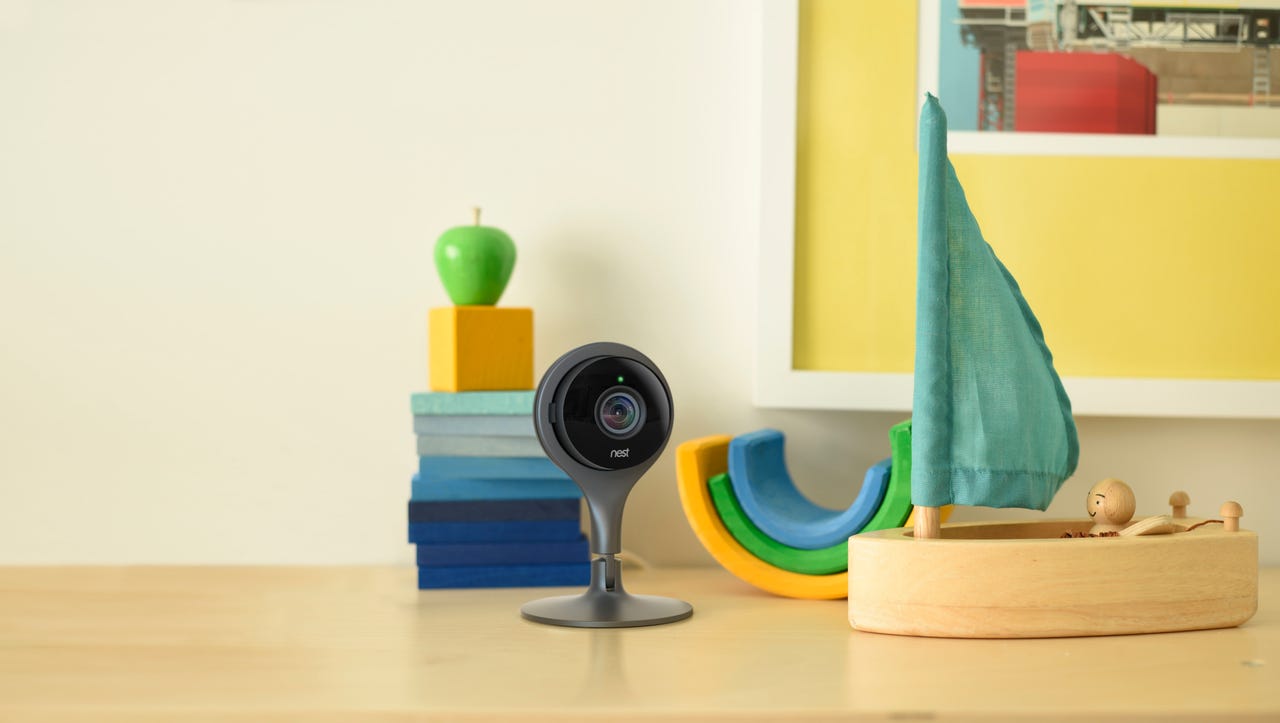Alphabet's Nest brings smart devices to Australian homes


Nest Cam Indoor
Alphabet's Nest Labs has landed in Australia, making available its smoke and carbon monoxide alarm, indoor and outdoor security cameras, and subscription-based footage viewing service Nest Aware.
As of Tuesday morning, Nest's safety and security products are available for purchase from online services comparison provider iSelect through its new Life Admin ecommerce store.
Nest Protect smoke and carbon monoxide alarm costs AU$189; the Nest Cam Indoor and the Nest Cam Outdoor are both priced at AU$319 each; and the Nest Aware subscription will be AU$14 for the first Nest device, then AU$7 per device for every other camera or alarm added to the subscription.
Speaking at Nest's launch in Sydney on Monday, iSelect MD and CEO Scott Wilson said his company helps Australians with insurance products for when things go wrong, adding that offering safety and security products allows iSelect to move closer to the source to avoid the problem in the first place.
With 110 insurance, finance, and utility companies as partners, a handful have chosen to offer deals via iSelect's new Life Admin Store, including Optus, which will give customers 25 percent off their mobile broadband connection when they buy a Nest product; Mate Communicate, which is offering three months of increased NBN speed to use the Nest devices more effectively; and Sumo Energy, which has reduced Nest customers' electricity price by 42 percent.
"iSelect started out as a disruptor ... so what we're doing with Nest and our core partners is about how do we disrupt the next phase for our customers and bring them better value," Wilson explained. "There will be a series of products that we will launch, such as with Energy Australia later this month -- we're working with 110 companies to bring innovative solutions to market."
Although it is in the business of smart devices, Nest director of product Maxime Veron said Nest does not consider itself a smart home company.
"We don't see ourselves as a platform company or a smart home company; we believe that Nest will be successful in that market, but a connected home will happen solving one pain point at a time," he said, also speaking at the company's launch.
"We don't believe people wake up and say, 'Today I'm going to buy a smart home solution'. Instead, we believe people at one point realise they need a solution to solve a specific paint point ... for example a smoke detector."
There are about 200,000 domestic fires in Australia every year, and twice as many malicious home damages ranging from vandalism to robberies every year -- a figure Veron said affects 5 percent of Australian homes.
"For us, it's about one product at a time that is really solving a pain point," he added.
Google scooped up Nest in 2014 for a cost of $3.2 billion, planning to make smart homes a reality by combining Android devices, its developer ecosystem, and treasure trove of data.
"They pretty much left us alone, which was a great way to set up the relationship and it enabled us to really start growing," Veron said of the acquisition.
Nest was born out of a garage in Palo Alto, California back in 2010.
Before the company's first product went to market, Nest founders Tony Fadell and Erik Charlton cornered now-Alphabet president Sergey Brin with a video of an early model of the Nest Learning Thermostat. Google Ventures then led Nest's Series B round of financing, and in 2012, its Series C.
With both founders spending time in Cupertino -- and Fadell even having a hand in the creation of the iPod -- Veron said there is a similar approach to Nest that Apple takes with its products.
"One thing we took from our experience at Apple is the only way to create a compelling product experience is to really have all of the software together," Veron said. "Think about when the iPod was launched, it became a success once you had iTunes and the App Store -- software was more critical than hardware."
Veron also mentioned Nest is working with other like-minded companies to bring devices together to create a connected home that leapfrogs what some call the smart home to create what he calls the platform home.
Gartner recently predicted that by the end of 2017, there will be 8.4 billion connected "things", and 20.4 billion IoT devices expected to be deployed by 2020. iSelect's Wilson expects there to be an average of 30 connected devices per home in Australia come 2021, in comparison to the 2016 average of 14.
"This really puts both of us at the forefront of the connected home," Wilson added.